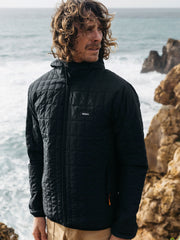In 2019 we have become a registered foundation. Aside from our local staff we all are volunteers, and as you can imagine, it is incredibly difficult to secure funding to run a project year-round. We are hoping to find donors through the foundation who can help us, either financially or in-kind to fulfil our goals.
One of the main issues we face is that our work is attracting a lot of people to the area, who come specifically to see the sharks. On one hand this is great, as it is bringing more tourists to Madagascar, who are spending money there to see whale sharks in their natural habitat. On the other hand, the growing tourism industry is potentially a threat to the sharks, as more boats mean more collision risks and behaviour changes for the sharks. Since 2017, we have tackled this by establishing a code of conduct and providing training for operators, which has led to great results, safer interactions and generally better atmosphere on the water. We are also recording socio-economic data on the sharks to show how much they are worth, alive, to the community and the country. Another argument to protect them and make sure they come back to their feeding grounds year after year!
At this point I feel we should all try to take a stand for the planet, and use our expertise to be of use to the different topics that currently need attention. I feel lucky to be dedicating my time to a cause that matters, but there are so many more issues that need our help. I have come to realise that for projects to succeed we need specialists, who are very good at what they do. So even if you don’t want to quit your job and follow your dreams, you can still make a difference by actively helping NGOs and grassroots projects. I strongly encourage everyone out there to join a cause you care about, and get involved: whether to volunteer for at weekends, to adopt single steps that make a difference, to use sustainable operators on your holiday. There are so many options out there!
You can follow the Madagascar Whale Shark Project on Twitter, Instagram and Facebook on @madawhalesharks and at www.madagascarwhalesharks.org

















































































